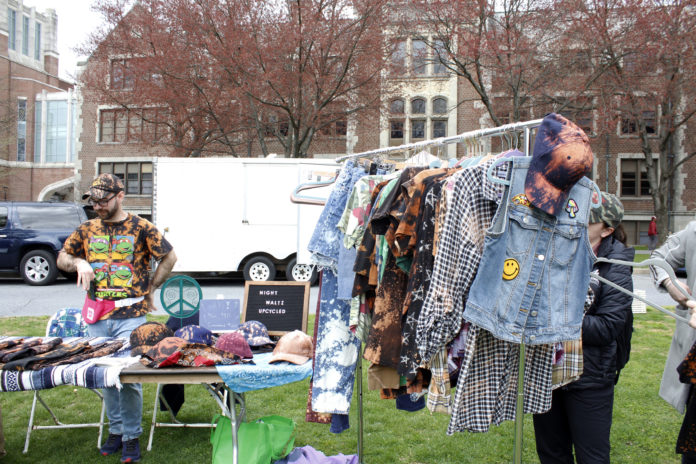
Have you ever noticed when you walk into a store, such as Forever 21 or Zara, there is a completely new selection of clothing items that weren’t there the week before? How about Target, where the sale section takes up as much room as the section of new clothing right beside it? With such a large assortment of clothing, and new collections being introduced weekly, a chunk of these items will inevitably go to waste. This phenomenon is called fast fashion.
Merriam Webster defines fast fashion as “an approach to the design, creation and marketing of clothing fashions that emphasizes making fashion trends quickly and cheaply available to consumers.”
Retailers are encouraged to replicate the most current high fashion trends and produce products that incorporate these trends as quickly as possible, regardless of the quality of the product.
While seasonal releases of clothing lines used to be the norm, now retailers release new items weekly, sometimes even daily, to keep up with consumer demand. Although the mass production of clothing items satisfies consumers, there is a significant, negative impact on the environment.
According to the United Nations, the fashion industry produces more carbon emissions than international flights and maritime shipping; a notable carbon footprint and clear contributor to climate change.
At Muhlenberg College, many students are clear contributors to this problem.
“I mainly shop at Target, American Eagle, and Forever 21,” says Kyla Buck ‘19, listing all stores classified under the fast fashion industry. “I like these stores because they’re relatively cheaper than other stores and I can get clothing for a variety of occasions at once,” she continued.
While Buck was aware of what fast fashion was, she did not necessarily recognize the harm in it. “It depends what you are looking for as the consumer,” she says. Similarly, Maddie Mcguire ‘19, defines fast fashion as “inexpensive clothing that represents current trends…I think it’s a good thing,” she says. Another student on campus, Devin Raimo ‘19, explains, “I like fast fashion because stores keep up with new trends and you can be stylish as soon as possible.”
Our goal is to reduce clothing waste, starting with the Muhlenberg College campus. We felt that there really were not many convenient options for a Muhlenberg student who wants affordable, used clothing or to clean out their closets without their clothing going to waste.
Fast fashion industries directly appeal to college students for these reasons, and although Muhlenberg College students might know what fast fashion is, they are not necessarily aware of the environmental effects associated with it.
Some of the environmental effects include untreated clothing dyes entering the water sources and textile waste in landfills, according to an article from Phys.org.
There are, however, operations on campus trying to change this trend and encourage people to shop in a more sustainable way; one of these movements is Upcycle Apparel, a Muhlenberg specific consignment shop on campus.
“Our goal is to reduce clothing waste, starting with the Muhlenberg College campus. We felt that there really were not many convenient options for a Muhlenberg student who wants affordable, used clothing or to clean out their closets without their clothing going to waste.” says Josh Myers ‘20, one of the creators of Upcycle Apparel. “At the end of the day, our overarching goal is to raise awareness about the environmental impacts of fast fashion and clothing waste, as well as provide a space for students to contribute on campus,” he explains.
Through campus initiatives, such as Upcycle, student awareness and knowledge on the adverse environmental impacts of fast fashion will increase. Regardless of the intention a student has upon entering an Upcycle event, they leave with more information about the fashion industry than when they entered the room, and according to Myers, “ [students] are supportive of the idea…and the contribution they can make by reusing clothing.”
This campus-wide initiative is a step towards a greater understanding of the fashion industry and the impact it has beyond the individual. Through acknowledgement and cognizance of the ongoing fast fashion phenomenon, students have the power to change their own behavior and encourage others to change theirs for the interest of a sustainable future.






















[…] News Source […]
[…] thrift the fashion trends rather than buying new item of clothing from fast fashion companies like most students. Her reasons, “I genuinely like going to thrift stores. I think it is pretty sustainable for […]